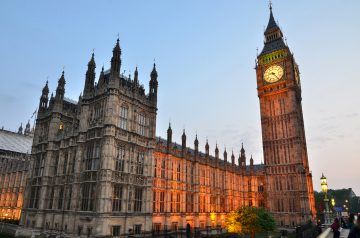Eleven top tips for renting a property
ARLA Propertymark has shared its top tips for renting, now that the industry has gone back to normal following the ease of lockdown restrictions.
The association hopes to make the process of renting as smooth as possible with these eleven tips:
1. Work out your finances
First of all, you should figure out a budget and research which areas you can afford. According to Zoopla, the average cost of renting a property in the UK during the final quarter of 2019 was £886 per month. This tends to be lower for first-time renters starting out with a one- or two-bed property.
Remember that as well as rent payments, you might also need to factor in a budget for:
- Gas
- Electricity
- Water
- Phone
- Broadband
- TV license
- Council Tax
2. View virtually
As of 13th May, the Government issued new guidance for England which allowed socially distanced viewings, that carefully adhere to public health guidance, to take place. Property viewings may be different from how they used to be, with some letting agents and landlords offering virtual viewings initially.
This can cut down the need to come into contact with other unnecessarily whilst the country is still in lockdown. If you like what you see online, then you can view the property in person. Just remember to keep your hands clean and you may also be asked to turn up with a face mask.
3. Know your rights
Before a tenancy agreement is signed, you need to prove that you have the right to live in the UK. You can find a list of what can be presented as proof in the Government’s Right to Rent guide.
It’s worth bearing in mind that temporary changes have been made to Right to Rent checks due to lockdown.
After you sign the contract, you must be given:
- a copy of your new home’s Gas Safety Certificate (if the property has gas)
- an Energy Performance Certificate (EPC) for the property
- the Government’s How to Rent Guide
- your Deposit Protection Certificate
- the Prescribed Information (this may take a few days)
- any license issued by the local authority (if the property is subject to any form of local authority landlord licensing scheme)
- if you are a new tenant from the 1st July 2020, you must also be given an Electrical Safety certificate
Phil Keddie, President, ARLA Propertymark comments: “Tenants who haven’t had to go through the lettings process at all, or at least haven’t since 2016, might be unaware of new legislation that has come into force since then. When signing a new tenancy, it’s important you keep on top of the costs, as well as your rights and responsibilities.
“From making sure you choose the right property, to knowing and understanding the legal process and your rights as a tenant, as well as adhering to the new rules around social distancing when viewing a property, there’s certainly a lot to consider. That’s why it’s important to have a reputable letting agent or landlord by your side to guide you through the renting process.”
4. Ensure you are protected
You need to make sure that you understand what kind of tenancy agreement you are about to sign. It is a legally binding contract, so it is important to read it carefully. Ask as many questions as you want until you are comfortable that you understand everything it contains and if you’re not happy, ask for any changes or amendments you want.
Letting agents should also have Client Money Protection and are required to display all fees they will charge you on their websites and prominently in their offices. This information should also include which redress scheme they belong to so that you can go to this scheme if you have an issue that you feel hasn’t been satisfactorily dealt with. ARLA Propertymark says that if a letting agent can’t provide you with this information, don’t use them.
5. Sort out the bills and insurance
If your agent does not do this for you, contact the utility companies used for your new home and provide them with meter readings, your move-in date, and the names of all the tenants (if you aren’t living alone).
Landlords will insure the building and any contents that belong to them, but this will not cover your belongings. You can take out your own contents insurance if you want to financially protect them.
When sharing a property, it’s worth agreeing on a system for fairly splitting the cost of bills and making sure they are paid on time. You will all be jointly responsible, so if someone doesn’t pay their portion, the rest of you will have to make up the difference!
6. Lets with pets
You should check the tenancy agreement before signing if you wish to keep pets. If there is a clause stating that no pets are allowed, you should not break this, as it can be used as grounds for eviction.
If you have a pet, your landlord may also put additional clauses into your tenancy agreement related to owning a pet, such as making sure it doesn’t foul in the garden or inside the property, not leaving it alone in the property for too long and cleaning the property thoroughly before the end of the tenancy. Any damage to the property or extra cleaning that needs to be undertaken by the landlord can be deducted from your deposit.
7. Safety first
Your landlord must ensure there is a working smoke alarm on each floor of your home. There must also be a carbon monoxide detector in any room where solid fuels are burnt (such as wood, coal or biomass). They need to be tested and working on the first day of the tenancy.
8. Check the inventory
A list of everything that is provided with the property will need signing at the beginning of the tenancy. This includes items such as furniture, carpets, curtains, appliances, crockery, and cutlery. If anything on this list is missing from the property or isn’t in the state it says (for example, a stain on the carpet), you need to notify your landlord or letting agent.
If you don’t query any discrepancies now, you might not be able to prove later on that you didn’t cause the damage/lose the item, which can lead to money being deducted from your deposit to cover the costs.
9. Sort issues before they become problems
Make sure that all contact details are up-to-date for your landlord or letting agent. If you discover any problems with the property, don’t be afraid to let them know straight away. The sooner you report an issue, the faster it can be sorted. It can also prevent the damage from getting worse, costing your landlord even more money.
If you plan on leaving the property empty for a while during the colder months, leaving the heating on low can help to prevent pipes from freezing. If you’ll be away longer than a couple of weeks, let your landlord or agent know so they can keep an eye on the property whilst you’re away.
10. Keep good records
This could be vital if there’s a dispute when you move out. Useful items might include photos taken when you moved in (ideally, dated and labelled), receipts for any items you’ve replaced, correspondence about repairs and copies of your bills.
It’s also important to either get written consent from the agent or landlord or to keep accurate notes about any changes the landlord has allowed you to make to the property such as putting up pictures or painting walls so that when you move out you have proof of this.
11. Return the property as you found it
Most deposits disputes are over the condition of the property at the end of the tenancy. Make sure you give the property a thorough clean before you move out and leave the property in the same condition as the day you arrived.






